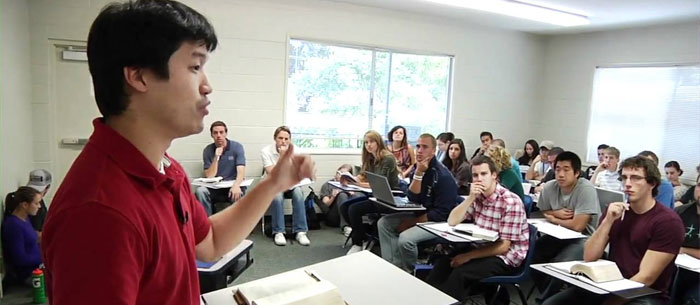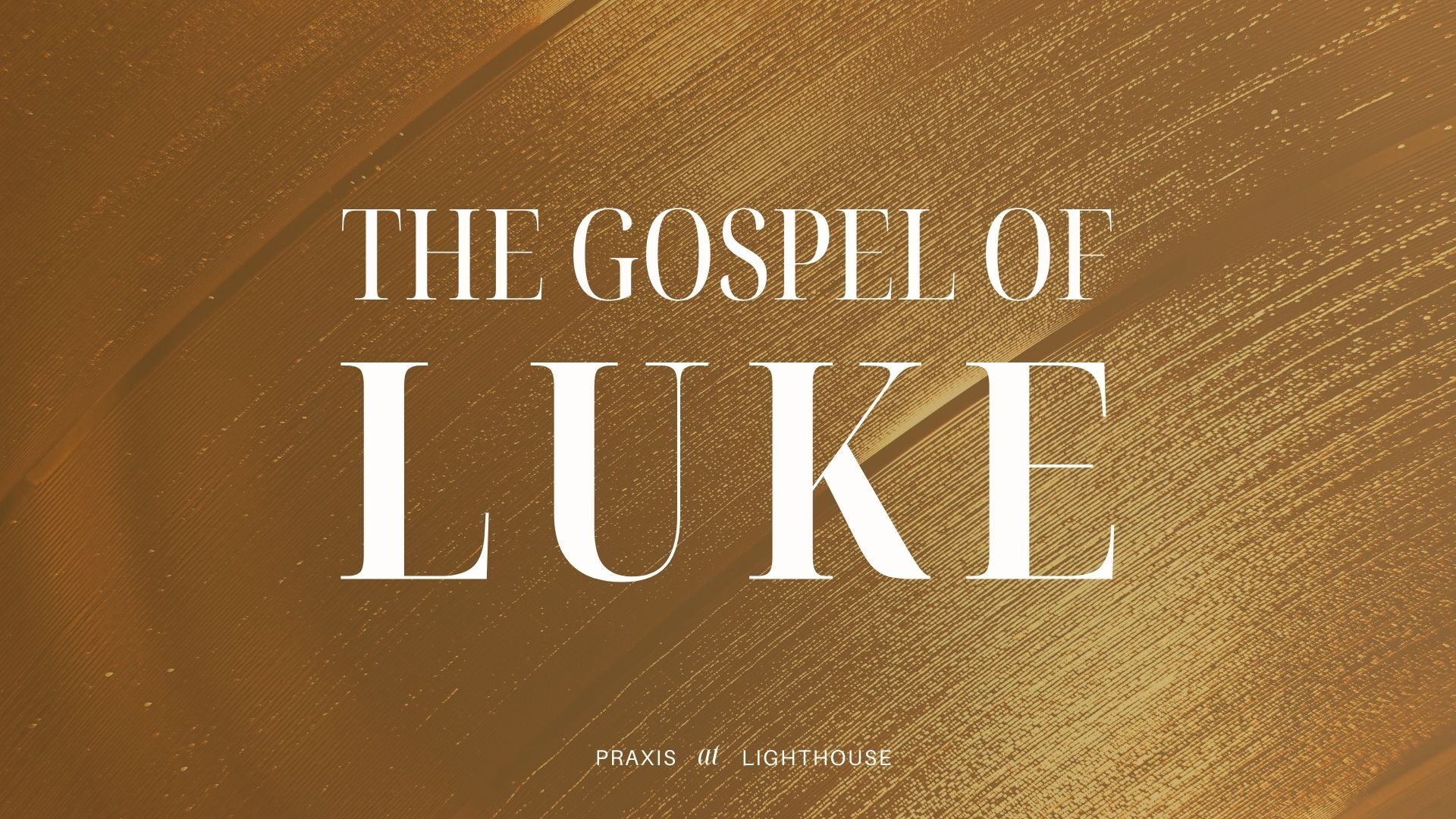Our spotlight sections are meant to highlight people, ministries, or resources that are beneficial to our church body. Today, Jesse Terasaki sits down with commentary writer, biblical scholar, and professor Abner Chou. Dr. Chou is a really smart guy, but one who is passionate about making the Bible understandable and real to Christians. In this first post, Jesse and Abner discuss how to go about getting started in understanding what you’re reading in the Bible.

Jesse Terasaki: One thing that I feel is really hard is when you sit down and you want to study a book of the Bible, especially something you’re not as familiar with, like Zephaniah. Maybe you could enlighten me, if you could excuse that Buddhist terminology, about where to start?
Actually, I’m going to type this out if that’s alright.
Abner Chou: Please, do whatever you need to do.
Jesse: By the way, macs are taking over the seminary now, everyone has a mac. TMS [The Master’s Seminary] is very hip now. That’s a change.
Abner: Do the professors even have macs?
Jesse: They’re starting to. Pretty interesting huh?
Abner: No kidding! We’re still very PC over here at the college, but hey cool! Go seminary…
Ok, so let’s say you’re starting. The first thing I would do is read the book, get some familiarity with it. You’re not looking for mastery. Read it several times if you can. You can write down questions or whatever, but you’re just looking for some comprehension.
Jesse: Like the “lay of the land?”
Abner: Exactly.
Any hermeneutics book is going to tell you that the first “scientific” step is historical background. So you’re going to need to look up in an encyclopedia/dictionary what is the background of this book, why was it written, it’s purpose, when was it written, what was going on at that time? You’re asking those, “who, what, where, when, why” sort of questions. So that now as you’re reading the book you have the intended impact of the whole book.
So when you’re thinking about Zephaniah like you mentioned, you’re thinking, “It’s very close to the exile, people are wondering about God’s goodness.” So this book is really trying to solve those kinds of issues. This book is really trying to show the Day of the Lord in it’s wrath and fury, but also that there is something people don’t really recognize hidden in it. Zephaniah means something is stored up, treasured in the day of the lord. Ok, so what is that?
So that starts to make your reading of the text closer and more precise to what was originally intended. So that is what historical background is going to do – it will add that realism to the text.

After historical backgrounds, you might want to study some things in genre. Most of the time, after you’ve studies certain genres you don’t have to keep restudying. For a nerdy nerd you have to keep up on the latest research, but for a lay person, the general approach of genre is so that your expectations of how things are communicated is sound.
This is nothing new. We have genres of movies, right? When you go to a comedy, you expect to laugh. When you go to a horror movie, you expect to get scared. If you don’t have that expectation, there’s something wrong. And parodies of genres are trying to deal with different types of expectations and work off of them. Genre has to do with the way something is presented, not necessarily the content.
So what genre does is give us a strategy to help understand the presentation better. If there is going to be a lot more symbolism, we’ll be ready for that. If it is history, there is a strategy the author is using to get across his intended meaning. So it’s all about a strategy at getting at the material through the presentation.
Genre also gives emphasis. An epistle might be more logical, there you are trying to build a theology of something. A poem might be more artful. There you are trying to amplify the beauty, meditating on how magnificent something is rather than trying to understand it. They aren’t mutually exclusive, but there’s a different emphasis.
For example, in Zephaniah you have a genre of prophetic poetry. So you are trying to amplify the depth of God’s wrath on the day of the Lord. And you’re trying to emphasize how beautiful the transformation is, it’s something that engages your sense. That does form a doctrine of something, but at the same time it’s emphasizing, bringing out that aesthetic beauty as well.
After that you have to deal with context. The literary context, how the whole book fits together, how the book fits with other books. Intertextuality helps us figure out how this book relates to God’s plan. There are all these levels of context. So you might be looking at how to outline the book, see how others have outlined the book. Looking to see how this book fits with other books and God’s plan, answering all these questions. And now you have this nice structure that shows how the book fits together, and fits with the rest of the Bible.
Then after that you go verse by verse, because you have a really good lay of the land now. You know how the book fits together, and how that answers questions in the book, and in the Bible, and how all that is working synergistically together. And after you have that layout, that framework, then each individual phrase you can study with that big picture in mind.
And none of these things is mutually exclusive. The better you understand a verse, the better you understand the context. The better you understand a word, the better you might understand how this book plays into a bigger theme of scripture that is developing. For example, the phrase “Day of the Lord” is one way the book of Zephaniah connects into God’s plan and the scripture as a whole, because we need to know more about this “Day of the Lord.”
These are the basic steps, any hermeneutics book will lay that out for you. A layperson should be looking at these things.
Ultimately, all those things have to connect with the text. You have to show me, you have to show yourself how does the TEXT fit with that information that you are looking at. Otherwise it’s just useless information. For example, when a person read this they would understand this because of the historical situation, or something like that.
Jesse: But what about people who don’t have the time to do all that?
Abner: While the steps sound like a lot of work, on one hand it is God’s word, so we should work hard.
But on the other hand, we are kind of spoiled in a good way where we have so many resources available to us, even a Study Bible that distills the most important things can give us that information quite quickly. If time is really the issue, then a good study Bible will help you with getting this information. Then you’re telling people take that study bible information and deliberately use it for a purpose.
Realize that the modern tools we have can set you up really quickly for the whole enterprise of studying the Bible. We have Study Bibles, classes, online resources, commentaries.

For example, one of our professors is doing this for the whole bible, only meeting every other week during the school year, not on holidays, and they get through the whole Bible in three years.
That’s a long time, but consider this: If you told someone you could just come for 3 years every other week and at the end have a firm foundation of the entire Bible, that wouldn’t be that much right? That’s pretty easy, if you stop and think about it!
We as church leaders need to be deliberate about really training our people to know the Bible well, and that sets them up for a lifetime of being able to love the Lord through everything he’s told us in the Bible.
Jesse: Cool. So what’s your personal method of Bible study, since you’re a scholar?
Abner: I walk through exactly the same steps I gave you, in that order.
In the second part of this interview, Jesse and Abner will discuss the nitty gritty of authorial intent, biblical precision, and how to know you’re right when studying the Bible. Stay tuned!
Interested in acquiring a Study Bible? Visit the book shelf on Sunday to purchase an ESV Study Bible for only $20.
 Jesse Terasaki serves as a Ministry Associate in Lighthouse’s college ministry, Beacon. He is married to his wonderful wife, Christine, and is thankful for the many ways God has blessed him in his life. He loves being part of the Lighthouse church family and staff. He is thankful for God’s grace in his life and wants to pour himself out for Jesus Christ and follow him.
Jesse Terasaki serves as a Ministry Associate in Lighthouse’s college ministry, Beacon. He is married to his wonderful wife, Christine, and is thankful for the many ways God has blessed him in his life. He loves being part of the Lighthouse church family and staff. He is thankful for God’s grace in his life and wants to pour himself out for Jesus Christ and follow him.
If you would like to leave feedback on any of our blog articles, please contact us at blog@lighthousesouthbay.org.


